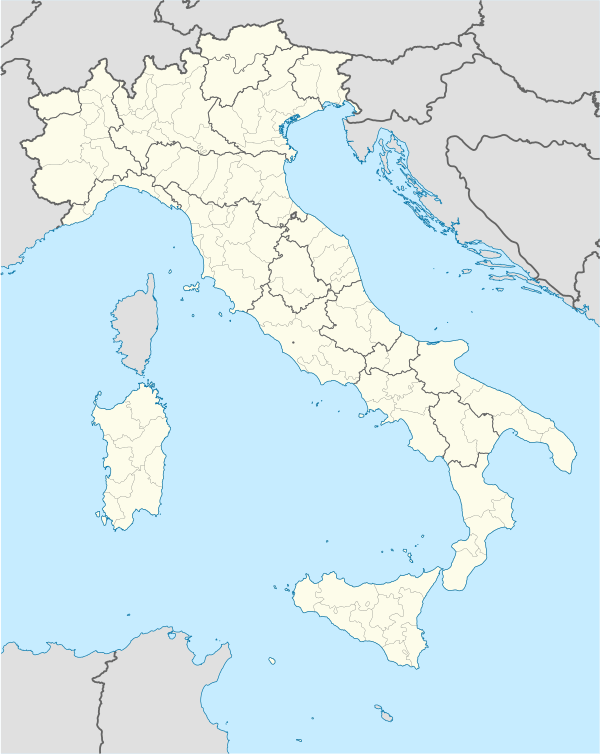Oltrepò Pavese
| Oltrepò Pavese | |
|---|---|
| Territory of the Province of Pavia | |
|
The Oltrepò within the Province of Pavia | |
 Location of the Oltrepò Pavese in Italy | |
| Coordinates: 44°59′33″N 9°0′33″E / 44.99250°N 9.00917°ECoordinates: 44°59′33″N 9°0′33″E / 44.99250°N 9.00917°E | |
| Country |
|
| Region |
|
| Province | Pavia (PV) |
| Seat | Voghera |
| Comuni | 78 |
| Area | |
| • Total | 1,097 km2 (424 sq mi) |
| Population (2011) | |
| • Total | 146,579 |
| • Density | 130/km2 (350/sq mi) |
| Time zone | CET (UTC+1) |
| • Summer (DST) | CEST (UTC+2) |
| Website | Official website |
The Oltrepò Pavese (Western Lombard: Ultrepò Paves) is an area of the Province of Pavia, in the north-west Italian region of Lombardy, which lies to the south of the river Po. (It is ‘oltre’ (beyond) the Po, when considered from the provincial capital Pavia and in general from the rest of Lombardy.)
Geography

Extending over an area of c. 1,100 km2 (420 sq mi), it is roughly triangular in shape, with a base to the north formed by the Po and a southern apex at Monte Lesima (1,724 m (5,656 ft)), a mountain of the Ligurian Apennines which is the highest point in the province.
To the west it is bounded by the Province of Alessandria (Piedmont) and to the east by the Province of Piacenza (Emilia Romagna). The territory comprises a plain close to the Po, a hilly section, which rises from the Valle Staffora to the west and from the upper Val Tidone to the east, and a mountainous zone which in addition to Monte Lesima includes the peaks of Monte Chiappo (1700 m) Cima Colletta (1494 m) and Monte Penice (1460 m). The main watercourse is the Staffora; other streams include the Ardivestra, the Versa and the upper part of the Tidone, including part of the Lago di Trebecco reservoir.
The principal settlements are Voghera, Casteggio, Broni, Stradella, Santa Maria della Versa, Salice Terme and Varzi.
The region became part of Lombardy in 1859.
Tourism
Though frequently called the Tuscany of the North of Italy[1] the Oltrepò Pavese in Lombardy is fairly unknown abroad.
The area offer several attractions: smooth hills, medieval villages and castles, panoramic views, authentic Italian food and local wines. The Oltrepò happens to be the largest wine producing area of Lombardy and one of the largest in Italy, especially of the Pinot Nero.[2] The landscape is scattered with vineyards that are freely accessible for hikers or even mountain biking.
Gastronomy
Particular of the area are the local sparkling wines, the "vivace", "frizzante" and also "spumante" wines. Reds and whites sparkle without being just sweet. The most famous local wine, the Bonarda is fruity but not sweet, in contrast to the Lambrusco e.g. A local, more classical wine is the Buttafuoco, the production of which is restricted to a small area in the North of the Oltrepò. A typical sweet red wine of the area is the Sangue di Giuda. The regional champagne-like spumantes have made it to the Italian DOCG category.[3]
Regional dishes uses the seasonal ingredients like mushrooms and truffles, the local meats of rabbit, wild boar etc. One of typical dishes is the Sunday's "pranzo" or lunch in which all of the servings of the Italian menu (antipasti, primi, secondi, contorni, dolci) pass by, sometimes even twice. The Varzi salame is a protected product, like the Parmesan cheese.
See also
Sources
- ↑ CNN iReport (2011)Retrieved 13 April 2014...
- ↑ http://www.vinoltrepo.it/languageeng/pino-nero.asp
- ↑ http://www.vinoltrepo.it/languageeng/denominazioni-dogc-e-doc.asp
- This article originated as a brief summary of its counterpart in the Italian Wikipedia.